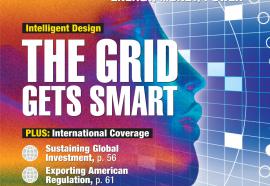People
(February 2007) The Electric Power Research Institute appointed Bryan Hannegan vice president for environment research and development. PNGC Power named John Prescott senior vice president of power supply. Nora Mead Brownell joined the Comverge Inc. board of directors. The Midwest Independent Transmission System Operator Inc. announced the election of two new members to its board of directors: Michael J. Curran and Eugene W. Zeltmann. And others...






